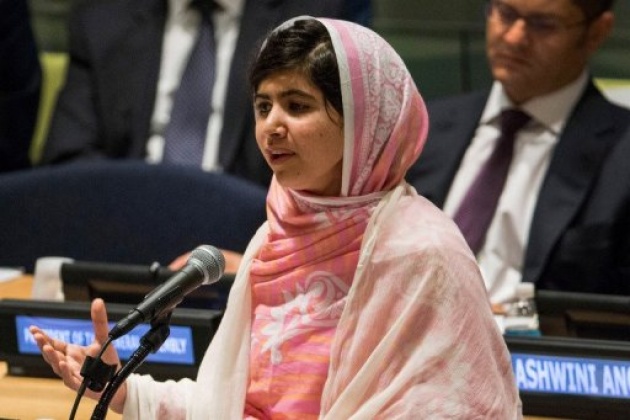A courageous young girl spoke before the UN Youth Assembly today, on her 16th birthday, after surviving a near-fatal gunshot to the head by Taliban insurgents as she rode the bus to school one morning in Swat Valley nine months ago. Malala Yousafzai’s words today illustrate how the “power of education” will bring equality, freedom and progress to this war-torn region in spite of insurgent efforts because as she indicates, the Taliban fear the “weapon of knowledge.” And she advocates not just for greater educational opportunities for girls, but also for “free compulsory education…for every child.”
There is no doubt that her words and her story are inspirational, but the fact that she advocates for education for all children in this region and not just girls is a refreshing message. Since I began my mission to bring greater educational opportunities to children with disabilities in Afghanistan through Operation Exceptional Child, all I seem to hear are calls to educate girls. Certainly educating girls is important – girls and women are seen as change-agents, especially in developing countries where progress is difficult and hard-fought. Studies indicate that because women are typically the care-givers for their families they tend to direct their lives, and the lives of their children, towards peace and prosperity making their communities more resilient.
In spite of the gains women and girls bring to the development of their communities I have always questioned the wisdom of leaving boys out of this mix. Boys make up the other half of the population and without an education boys are at greater risk to fall victim to the influence of insurgents who have been successful in places like Afghanistan and Pakistan in convincing boys to pick up guns instead of books. By not also making a strong push on behalf of educating boys the world risks further instability in this region.
So too, expanding educational opportunities for children with disabilities is key to the sustainability of development gains in places like Afghanistan and Pakistan. Disabled children are fully-capable of contributing to the peace, prosperity and the sustainable development of their communities, just as their non-disabled peers seek to do. By also not including children with disabilities in the cries for greater access to education we risk leaving a substantial number of children behind who have real potential. Without an education children with disabilities have a bleak future indeed, and are certainly subject to the influence of insurgent groups like the Taliban who seek to use these special children as weapons to cause further instability in the region.
By advocating for greater educational opportunities for all children, including disabled children, we send a more powerful message to the enemies of peace and prosperity in places like Afghanistan and Pakistan. As we increase educational resources, information, and freedom of action for ALL children we also increase the ripple effects that peace in this region will bring to the rest of the world.




